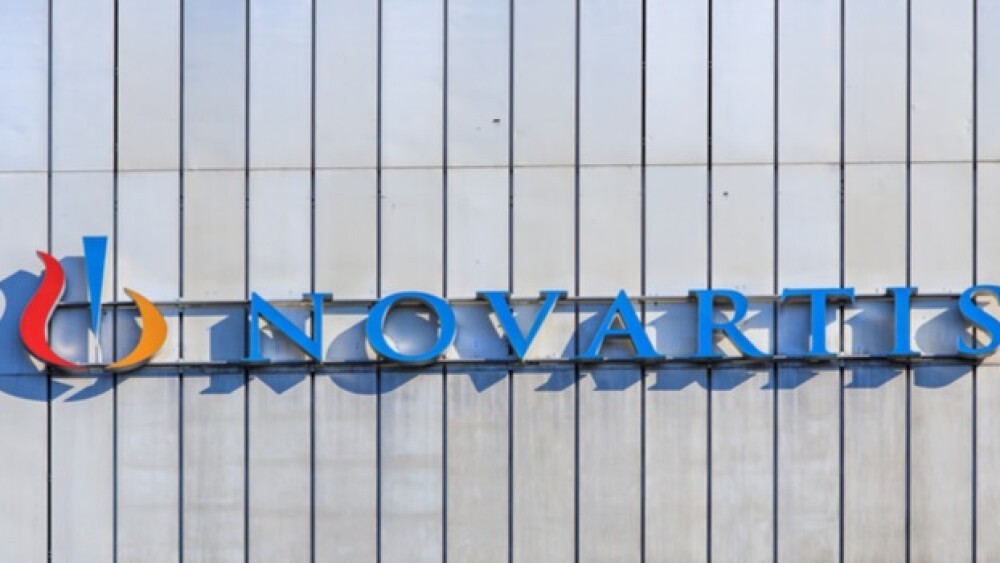As Novartis looks to regain its reputation following a series of ethical blunders, the company unveiled a new ethics scoring system that will be tied to employee bonuses.
Denis Linine / Shutterstock
As Novartis looks to regain its reputation following a series of ethical blunders, the company unveiled a new ethics scoring system that will be tied to employee bonuses.
During a call with reporters and analysts on Monday, Chief Executive Officer Vas Narasimhan outlined the scoring system, Reuters reported, which includes scores of 1, 2 or 3. A score of 2 means an employee is meeting expectations, while a score of 3 indicates that a Novartis employee is demonstrating what was referred to as “role model” behavior, Reuters said. Employees who receive the “role model” score, are then eligible for a bonus of up to 35 percent of their total annual compensation, according to the report.
Samir Shah, Novartis’ head of investor relations, said the company has attempted to find the right “balance between pay for performance and having the right behavior.” He was specifically referencing sales staff in his comment. Some sales members have been implicated in some of the scandals that have given the company a black eye in recent years.
Novartis was highlighting the dedication to ethics as the company looks to restore its image in the wake of multiple bribery scandals in global markets, as well as its payments to an attorney formerly associated with President Donald Trump that has been likened as a “pay-to-play” program beyond traditional lobbying methods. However, Reuters did note that according to Novartis, this ethics system has actually been in place for two years, although it’s not been widely known or reported.
Shannon Klinger, Novartis’ general counsel and former chief ethics officer, said the rating system allows company leadership to “look at the behavior metric before any money leaves Novartis, and catch potential misconduct before there is any risk to our reputation,” Reuters reported.
Highlighting the ethics scoring system comes one month after Novartis hired Siemens veteran Klaus Moosmayer as its new chief ethics officer following Klinger’s promotion to general counsel. Moosmayer will officially join Novartis on Dec. 1. Moosmayer was an ideal choice for the Swiss pharma giant given his extensive resume that includes the role of chairman of the Anti-Corruption Taskforce of the Business and Industry Advisory Committee at the Organization for Economic Co-operation and Development (OECD). Additionally, he holds the role of vice chairman of business compliance for the current G20 presidency. When Moosmayer was announced as its new chief ethics officer, Narasimhan said he would play a key role on the leadership team as the company further defines its “approach to ethics, risk and compliance in the coming years.”
It will likely take some time, as Novartis is still wrangling with the fallout of ethical failures under the previous CEO Joe Jimenez, which includes the $1.2 million payment to Trump attorney and “fixer” Michael Cohen. The attorney, who is under indictment, was paid the $1.2 million for consulting services, which have been decried as attempts to provide the company with access to key Trump officials as it looked to get certain drugs approved for Medicare and Medicaid.
Some of the bribery scandals that have damaged the reputation of Novartis have occurred since the ethics system was implemented in 2016. In 2017, the company faced allegations it bribed physicians and other public officials to boost prescriptions and company sales in Greece. In August 2016, Novartis executives in South Korea were indicted for allegedly making $2 million in payments to physicians in exchange for prescribing Novartis medications. Similar allegations were made in 2016 by a whistleblower in Turkey. In November 2015, the year before the ethics system was put in place, Novartis agreed to pay $390 million to settle a civil lawsuit related to the kickback payments to specialty pharmacy companies that distributed the drugs Exjade and Myfortic.





